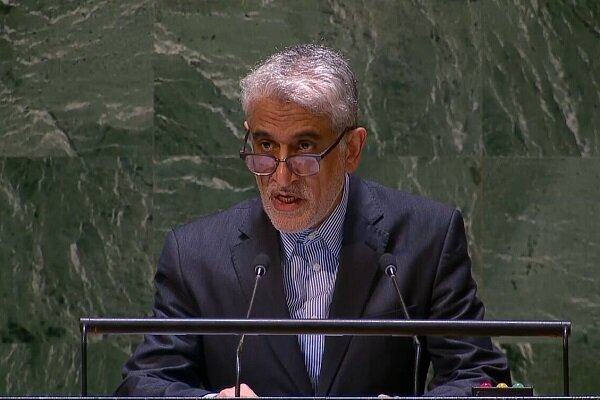Iran (IMNA) - Iravani highlighted that the existing authorities have imposed stricter restrictions on women and girls, limiting their access to education. He also pointed out ongoing attacks on minority groups like the Hazara Shiites, as documented in a UN report. The ambassador stressed the importance of addressing the concerns of neighboring countries in any engagement with the de facto authorities, including the establishment of an inclusive government, protection of ethnic rights, counterterrorism efforts, prevention of illegal immigration, and tackling drug production and trafficking.
Iravani underscored that an inclusive government in Afghanistan could help address various challenges, such as conflicts, refugee movements, stability, security, and human rights protection, particularly for women. He expressed Iran's concern over the deteriorating situation of Afghan refugees and emphasized the need for international support in addressing issues like terrorism, drug trafficking, and border security.
The ambassador highlighted Iran's struggles with illegal immigration from Afghanistan and the burden it places on the country, especially under sanctions. He lamented the lack of sensitivity from the international community towards this issue and the challenges Iran faces in monitoring its borders due to restrictions imposed under sanctions. Iravani emphasized the differing priorities and concerns of neighboring countries and the global community regarding Afghanistan.

The Iranian ambassador to the United Nations, Saeed Iravani, emphasized the necessity of establishing a comprehensive Afghan government that would protect the rights of all ethnic groups and combat terrorism. Speaking at the UN Security Council briefing on "the situation in Afghanistan" in New York on March 6, Iravani criticized the current de facto authorities in Afghanistan for failing to promote genuine ethnic and political inclusivity.
News ID 734044

Your Comment